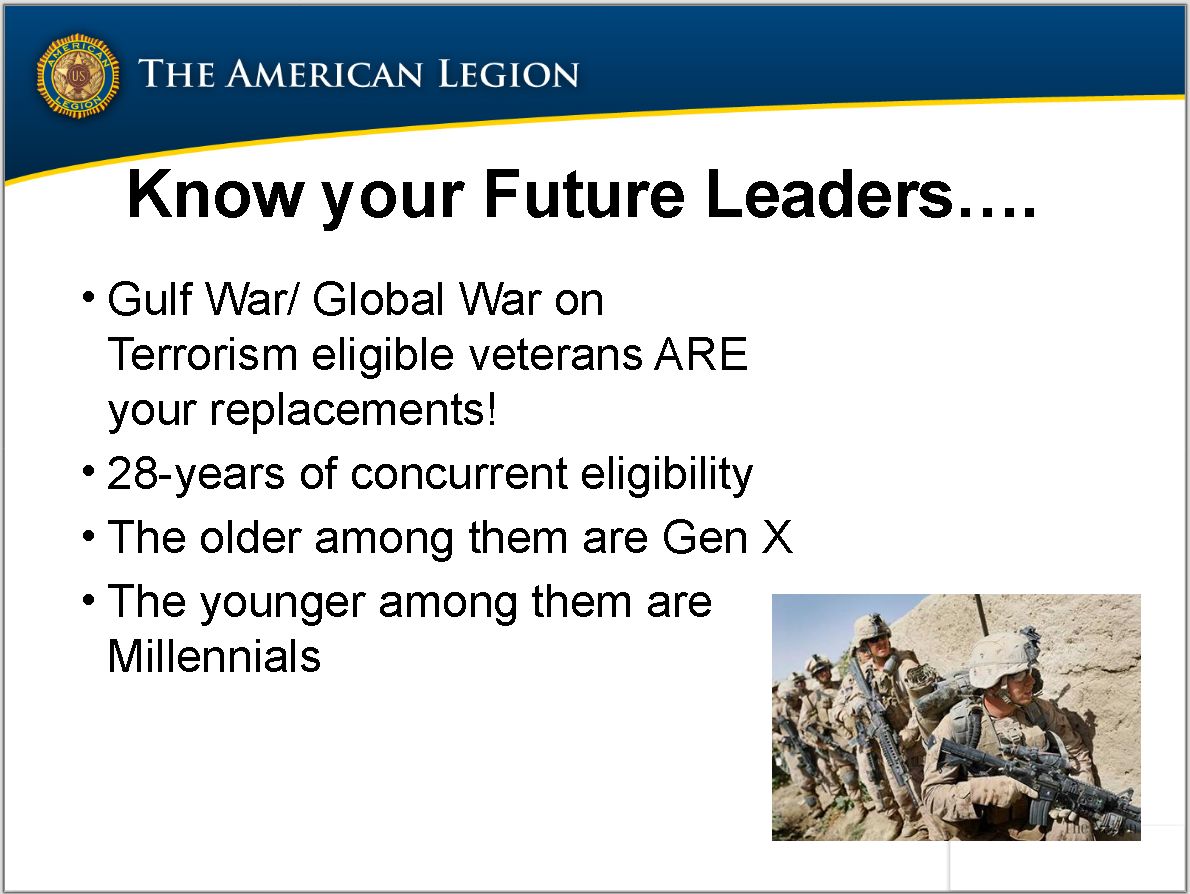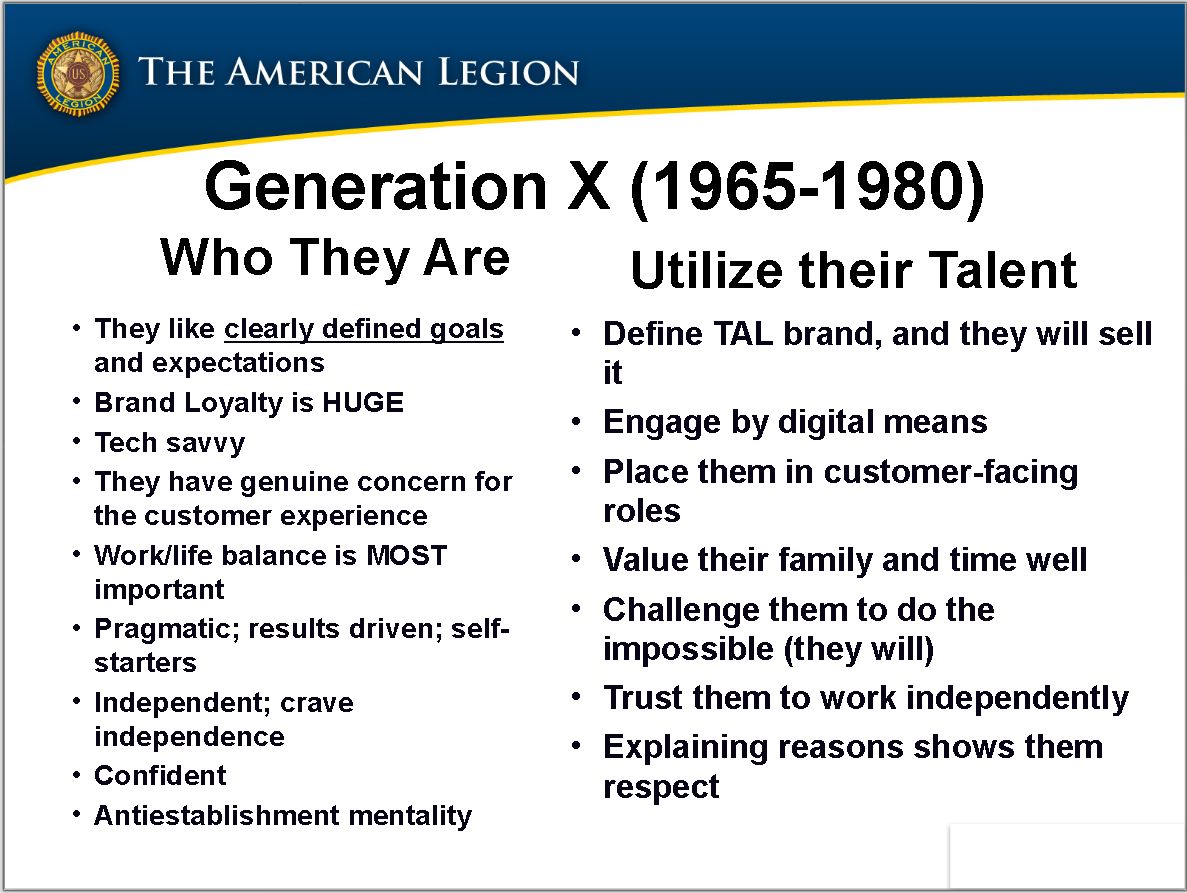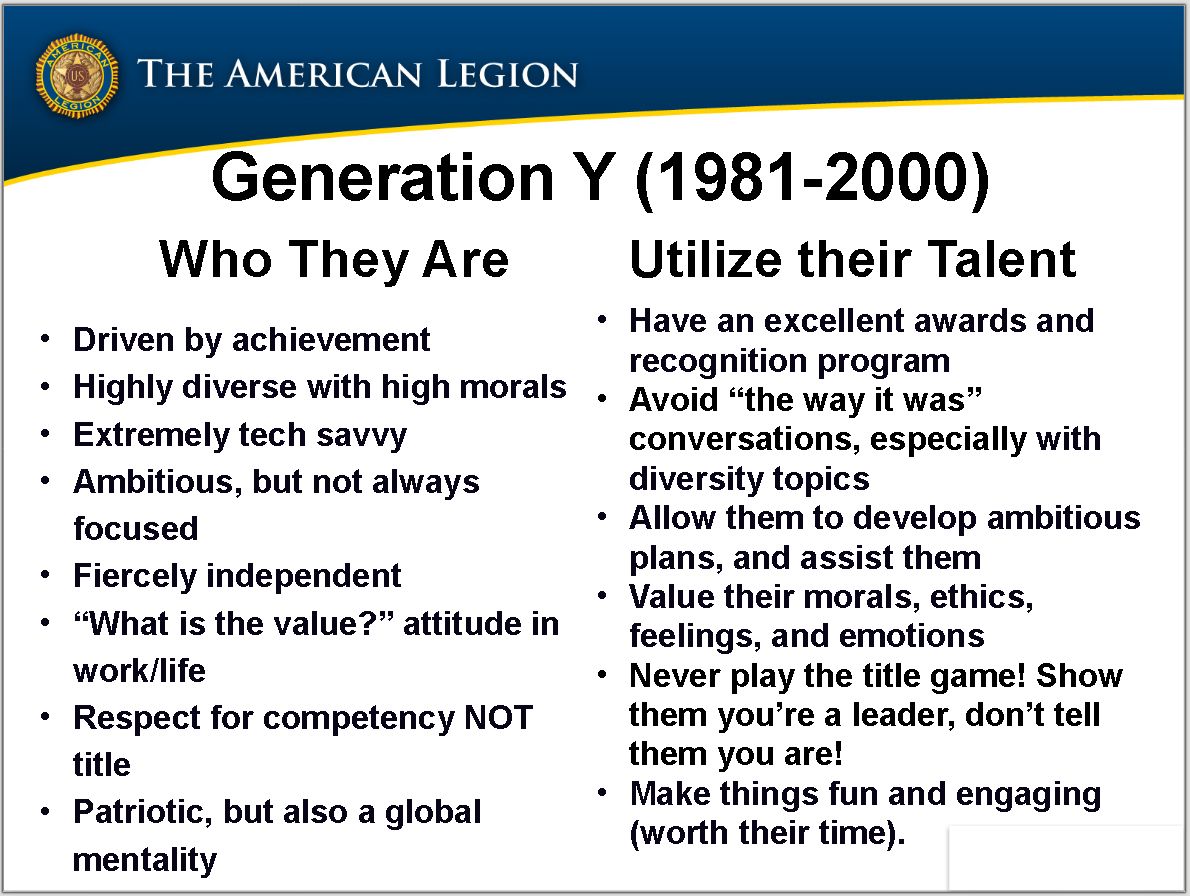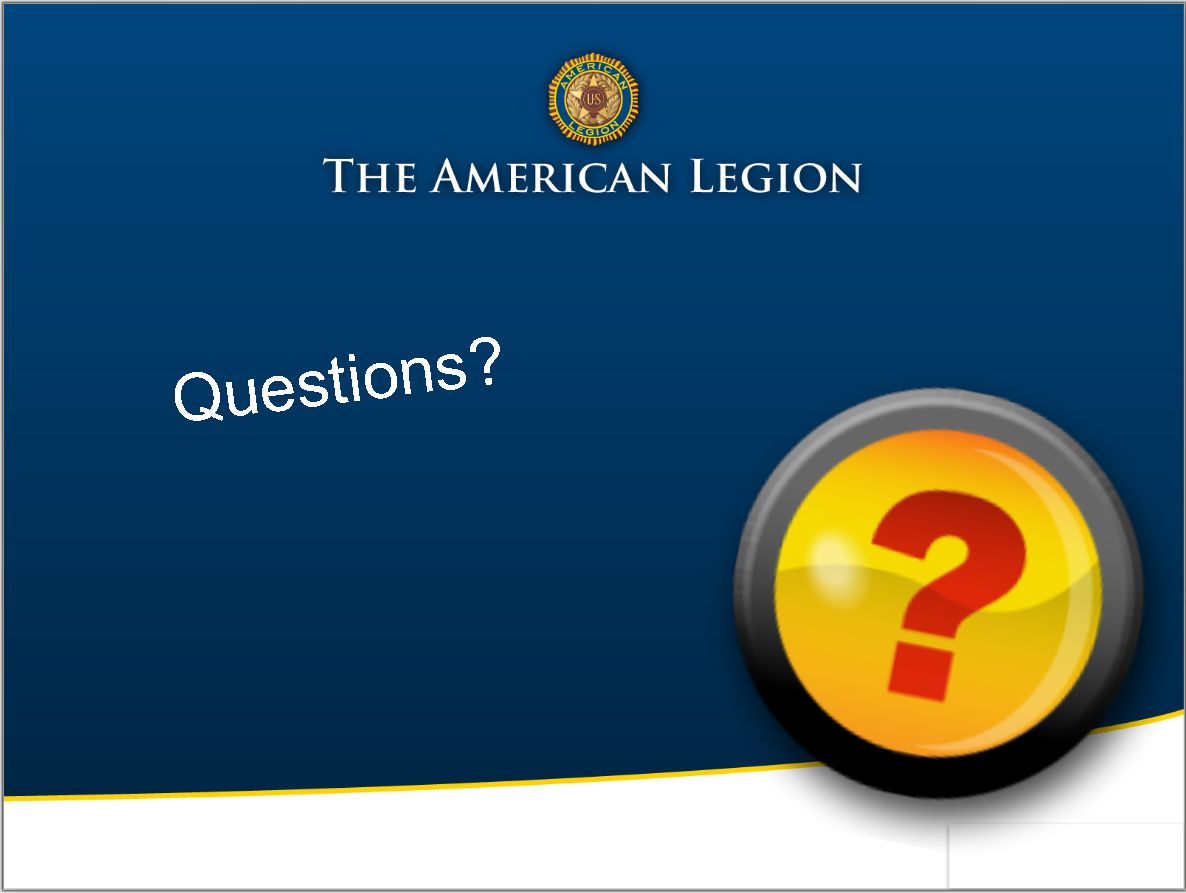Mentorship Slide Presenation
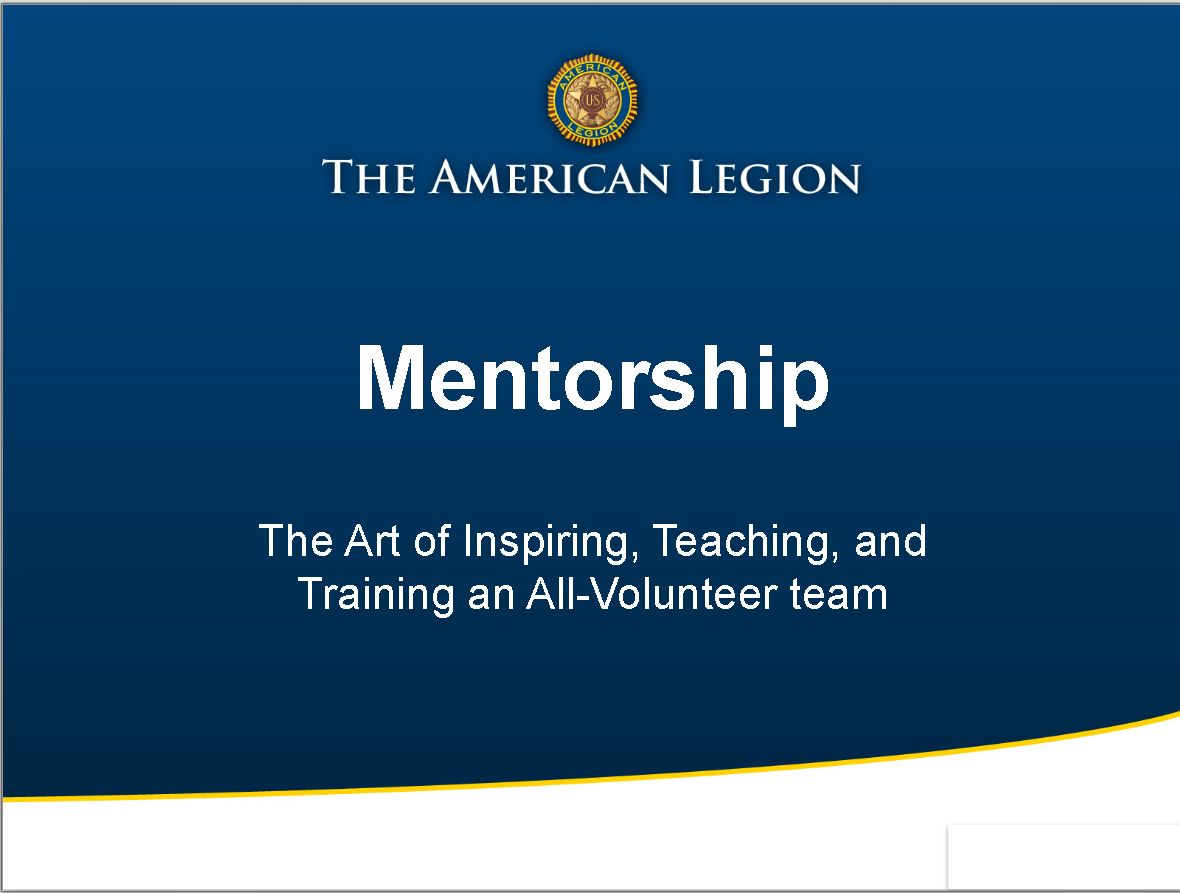 Inspiring will be a common theme. Inspiring others requires leadership; separate but not mutually exclusive from management.
Inspiring will be a common theme. Inspiring others requires leadership; separate but not mutually exclusive from management.
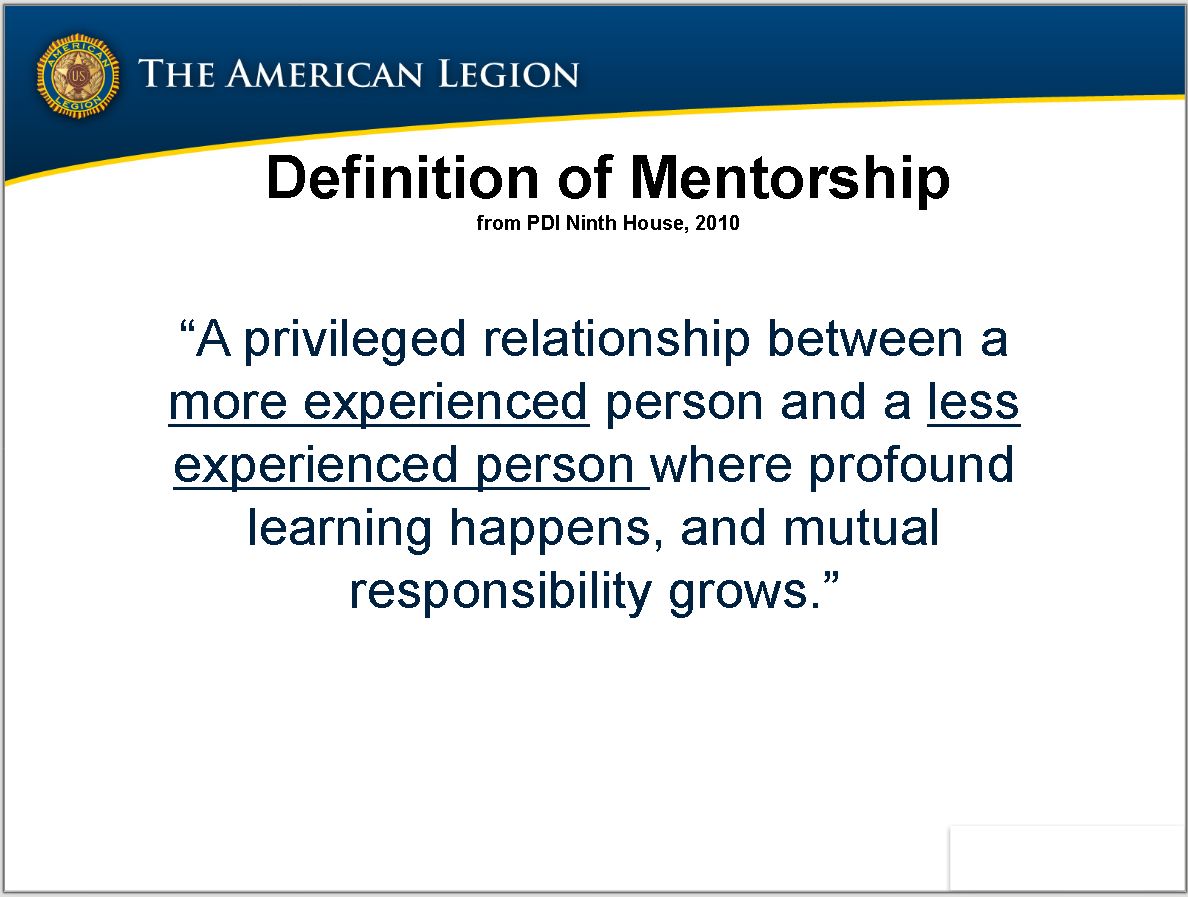 We could break this down way deeper. What is experience? Does it have to be good experience? That depends on the leader! Many of us would agree that we learn more from our failures than we do our successes. Therefore, failure can be the greatest experience! However if we pass the baton of failure to an individual who, again, makes the same mistakes, then they were NOT mentored!
We could break this down way deeper. What is experience? Does it have to be good experience? That depends on the leader! Many of us would agree that we learn more from our failures than we do our successes. Therefore, failure can be the greatest experience! However if we pass the baton of failure to an individual who, again, makes the same mistakes, then they were NOT mentored!
Also, what is "Profound Learning"? Profound implies very great or intense, particularly with respect to emotion! We will talk more about passion and conviction later, but without that "Ah Hah" moment from mentor to mentee, "profound learning" likely didn't occur.
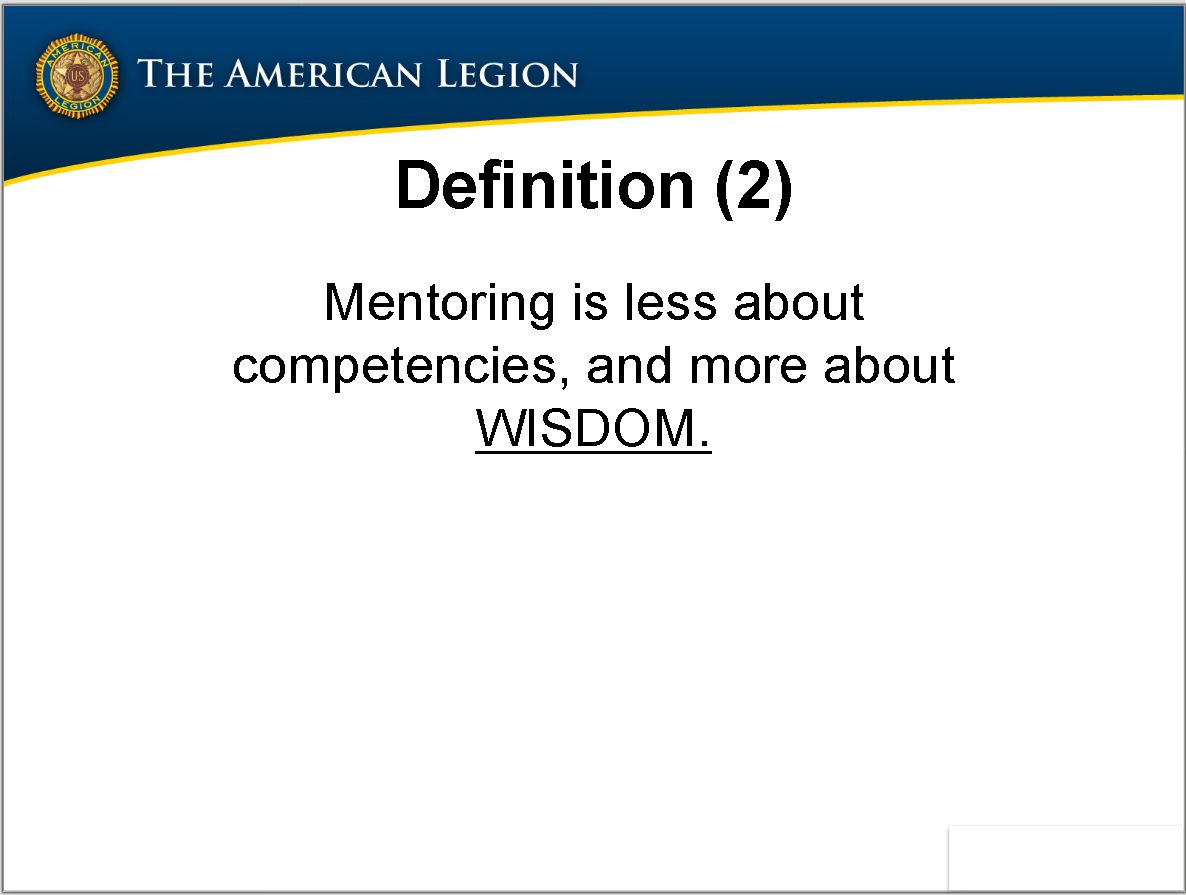 We could spend days talking about the difference between IQ and EQ ( Intelligence Quotient v Emotional Quotient) or comparing"street smarts" with "book smarts" or natural skill with raw talent. Most would agree though that the best fighter pilot is likely not the best infantry commander; or the top CEO is not the best person to fix the copy machine. There is this artificial understanding that age and completency alone are the best resources for continuing education. However, it is subjective. . . somebody that has been a post adjutant for the last 15 years may or may not be the best person to mentor a rising star. The question that you must ask is, was the adjutant a good one? What was achieved in the last 15 years. . . and is that trending in the right direction. . . worth sustaining.
We could spend days talking about the difference between IQ and EQ ( Intelligence Quotient v Emotional Quotient) or comparing"street smarts" with "book smarts" or natural skill with raw talent. Most would agree though that the best fighter pilot is likely not the best infantry commander; or the top CEO is not the best person to fix the copy machine. There is this artificial understanding that age and completency alone are the best resources for continuing education. However, it is subjective. . . somebody that has been a post adjutant for the last 15 years may or may not be the best person to mentor a rising star. The question that you must ask is, was the adjutant a good one? What was achieved in the last 15 years. . . and is that trending in the right direction. . . worth sustaining.
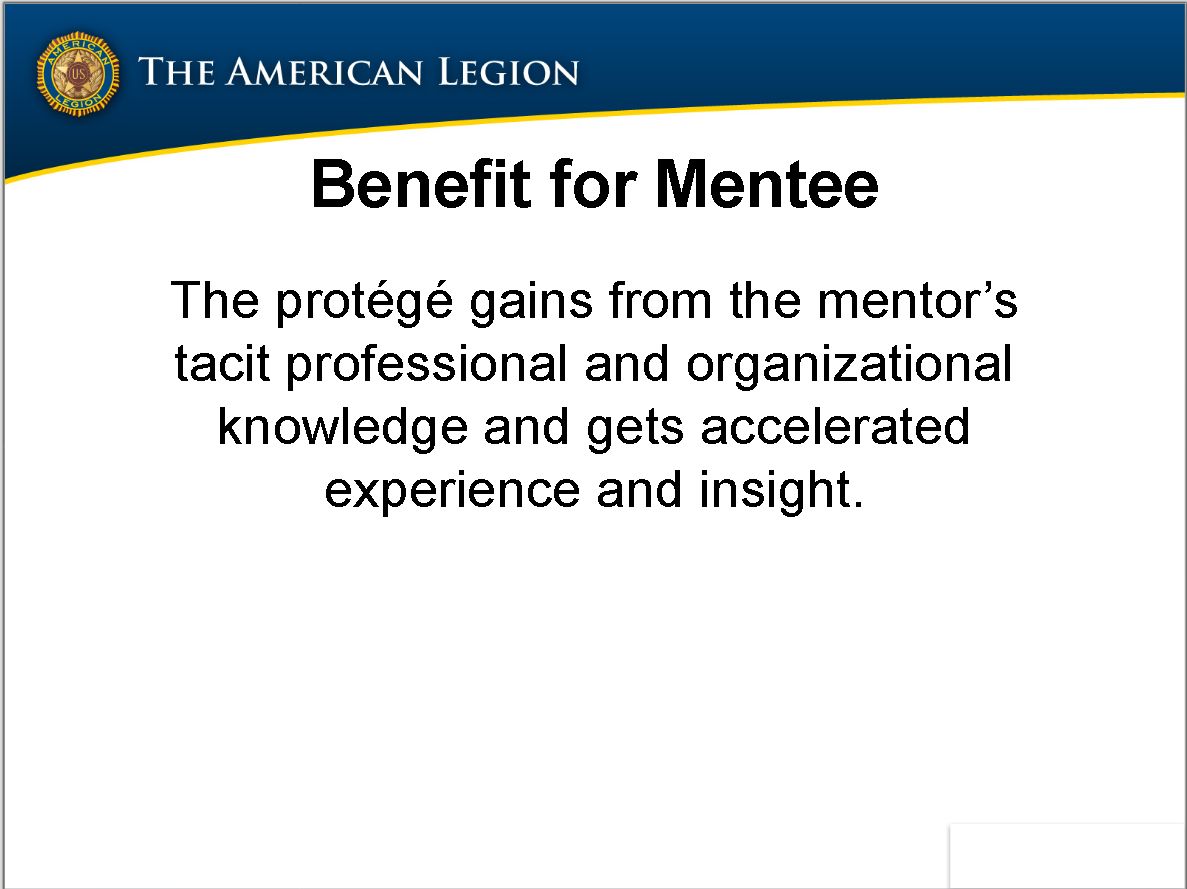 So that mentee, or protege, is getting accelerated experience and insight because of the identified characteristics and genuine character of that person, and a sincere belief that they can lead in the future. (It' about potential, not about "immediate skillset")
So that mentee, or protege, is getting accelerated experience and insight because of the identified characteristics and genuine character of that person, and a sincere belief that they can lead in the future. (It' about potential, not about "immediate skillset")
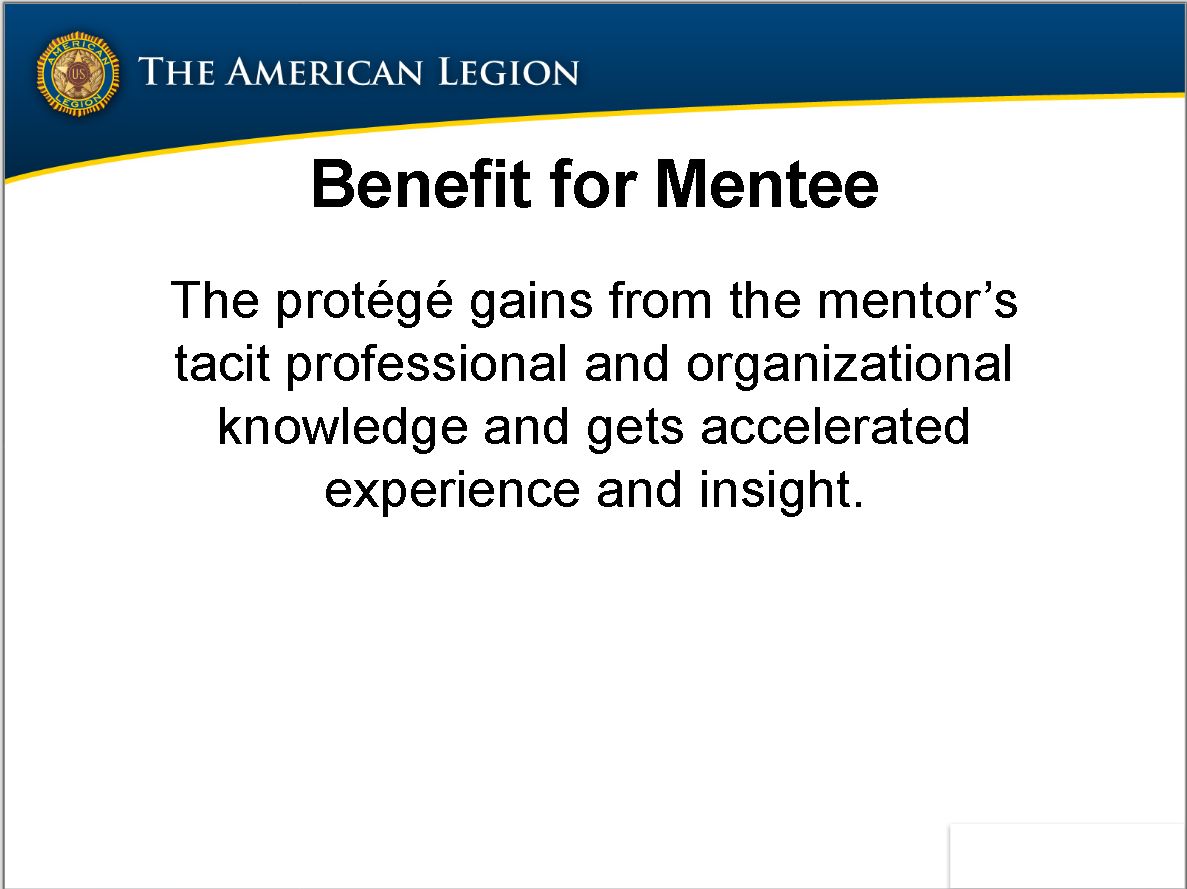 The single greatest achievement of a great leader is the act of reproducing themselves and NOT limiting their protege as someone who can be "almost as good" or "as good" as them. . . but exponentially BETTER! When a leader feels an immediate responsibility ( or sponsorship) for a promising young leader, it has the psychological effect of making the leader " up their own game".
The single greatest achievement of a great leader is the act of reproducing themselves and NOT limiting their protege as someone who can be "almost as good" or "as good" as them. . . but exponentially BETTER! When a leader feels an immediate responsibility ( or sponsorship) for a promising young leader, it has the psychological effect of making the leader " up their own game".
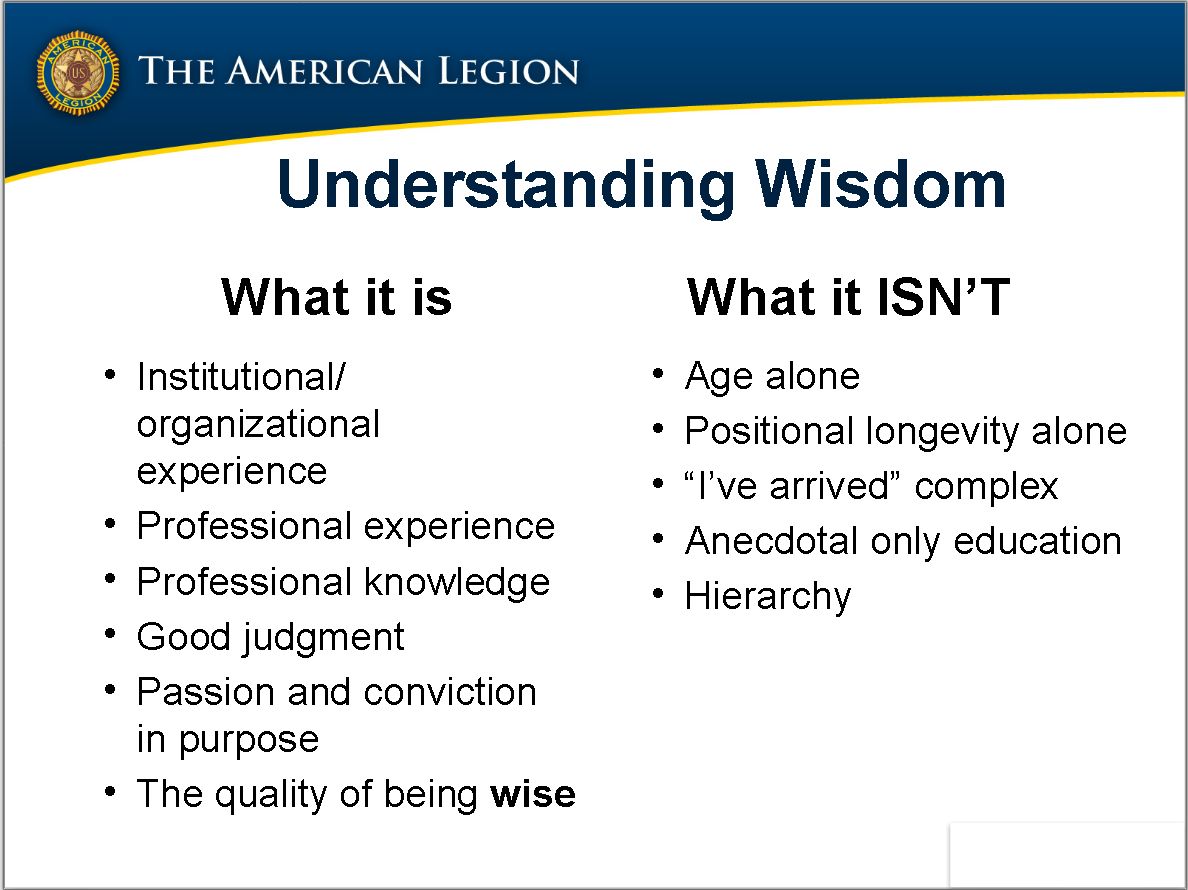 One of the most important things about being wise is knowing that there are poeple around you with great ideas and icredible vision that must be exploited! A General Officer said thet "the best tactical plan might belong to the quiet Private in the back of formation who wouldn't speak up until he lost one too many friends...unless you ask him and give him the floor." Give your people a voice, allow for civil discourse, encourage the "challenging of collective wisdom" and then, you will be wise. In the end, someone has to make the decision...but make sure that it's a "fully informed" decision.
One of the most important things about being wise is knowing that there are poeple around you with great ideas and icredible vision that must be exploited! A General Officer said thet "the best tactical plan might belong to the quiet Private in the back of formation who wouldn't speak up until he lost one too many friends...unless you ask him and give him the floor." Give your people a voice, allow for civil discourse, encourage the "challenging of collective wisdom" and then, you will be wise. In the end, someone has to make the decision...but make sure that it's a "fully informed" decision.
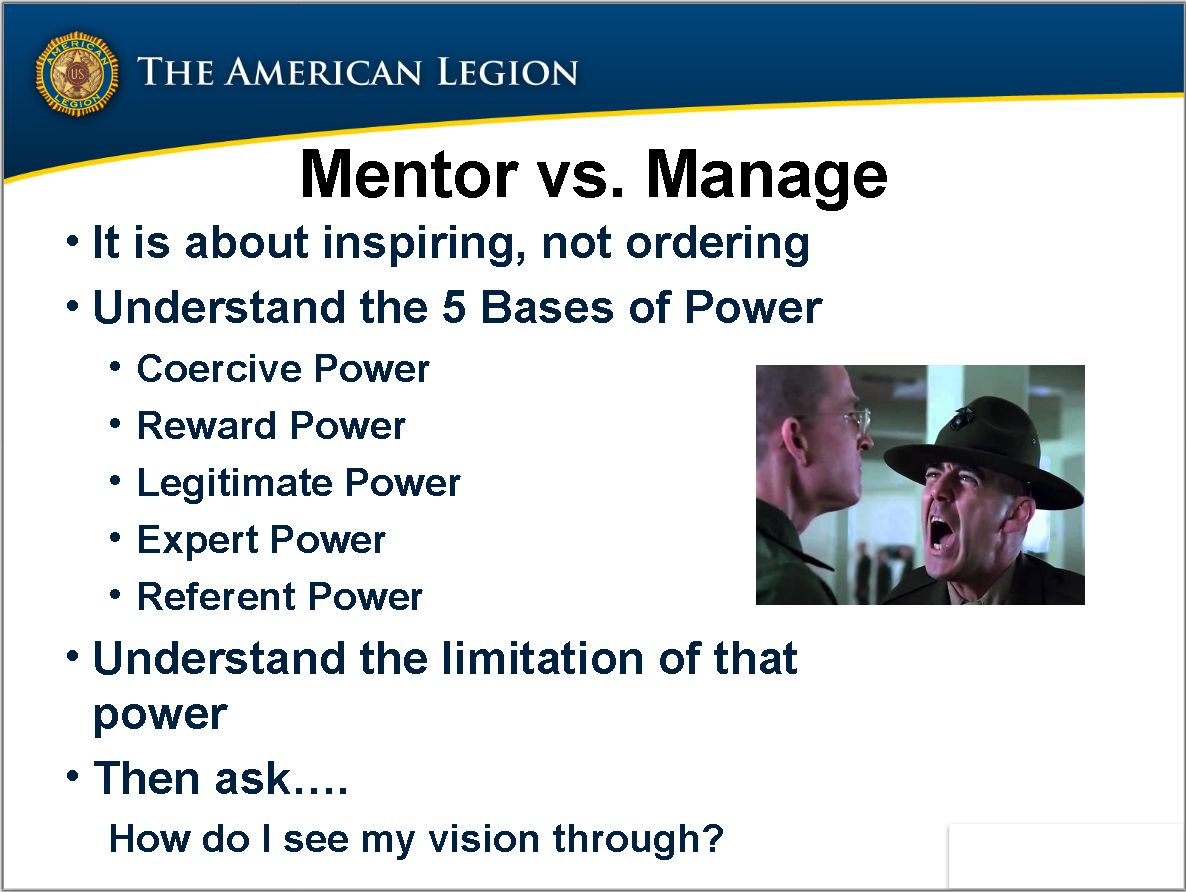 In the military, the model for 'IOP', "Industrial Organizational Psychology", was born. All five bases of power exist, and are exploited, to accomplish the mission. In TAL, "Texas American Legion", there is no real coercive power (the "or else" power). There is no legitimate power (promotion warrants enforced by UCMJ and/or federal law), and only limited reward power (you cannot always monetize or incentivize excellence). You are left to promote change and ed excel using Expert Power and Referent Power. Referent power is that power that is bestowed upon you BY your people because they believe in you! That expert power is gained by people viewing you as "an expert".
In the military, the model for 'IOP', "Industrial Organizational Psychology", was born. All five bases of power exist, and are exploited, to accomplish the mission. In TAL, "Texas American Legion", there is no real coercive power (the "or else" power). There is no legitimate power (promotion warrants enforced by UCMJ and/or federal law), and only limited reward power (you cannot always monetize or incentivize excellence). You are left to promote change and ed excel using Expert Power and Referent Power. Referent power is that power that is bestowed upon you BY your people because they believe in you! That expert power is gained by people viewing you as "an expert".
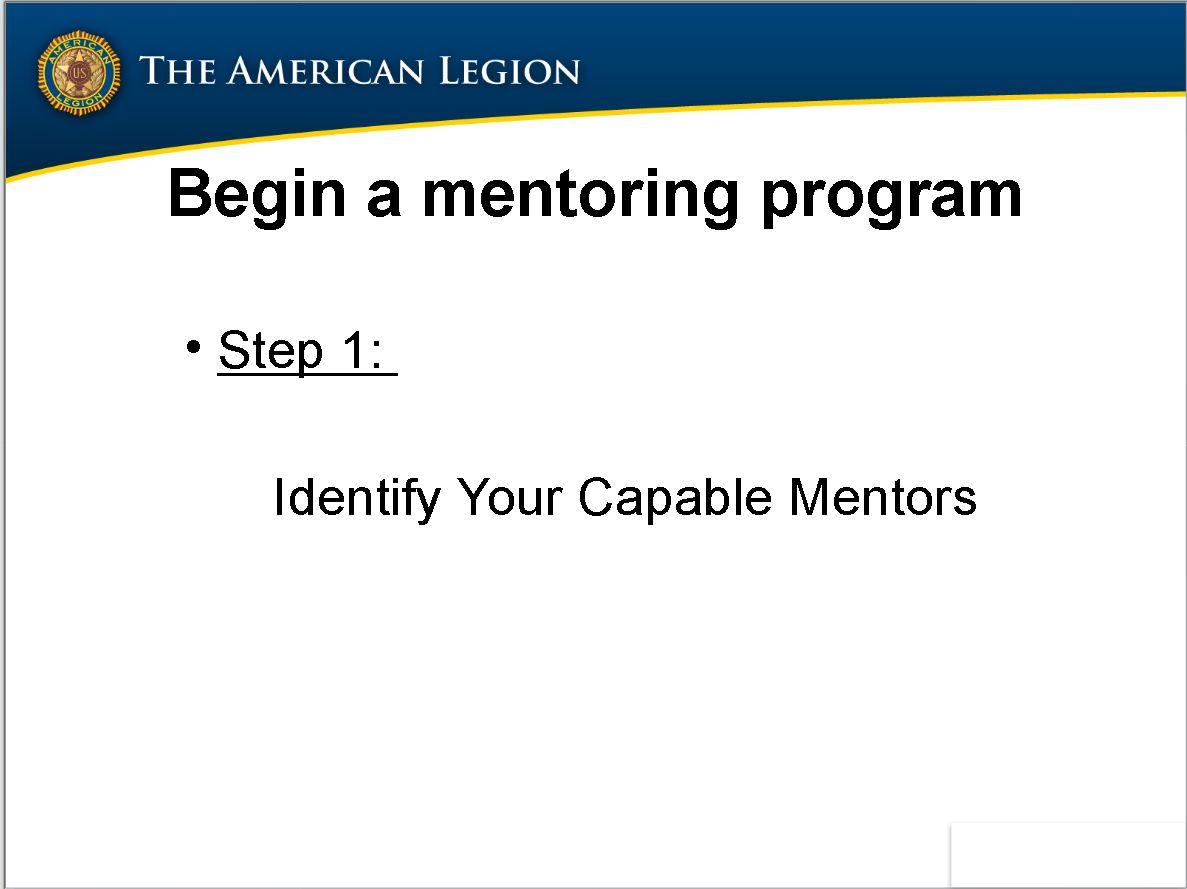 THIS IS CRUCIAL
THIS IS CRUCIAL
A capable mentor is most often selfless, honest, charismatic, smart, loyal (EMPHASIZE LOYAL), tempered, patient, and resonates conviction in purpose. Humility is often the first sign of the right person. In the end, they want to develop people who are "BETTER THAN THEM." Be careful of giving too much credit to the "one uppers," "recognition seekers" and "sea lawyers".
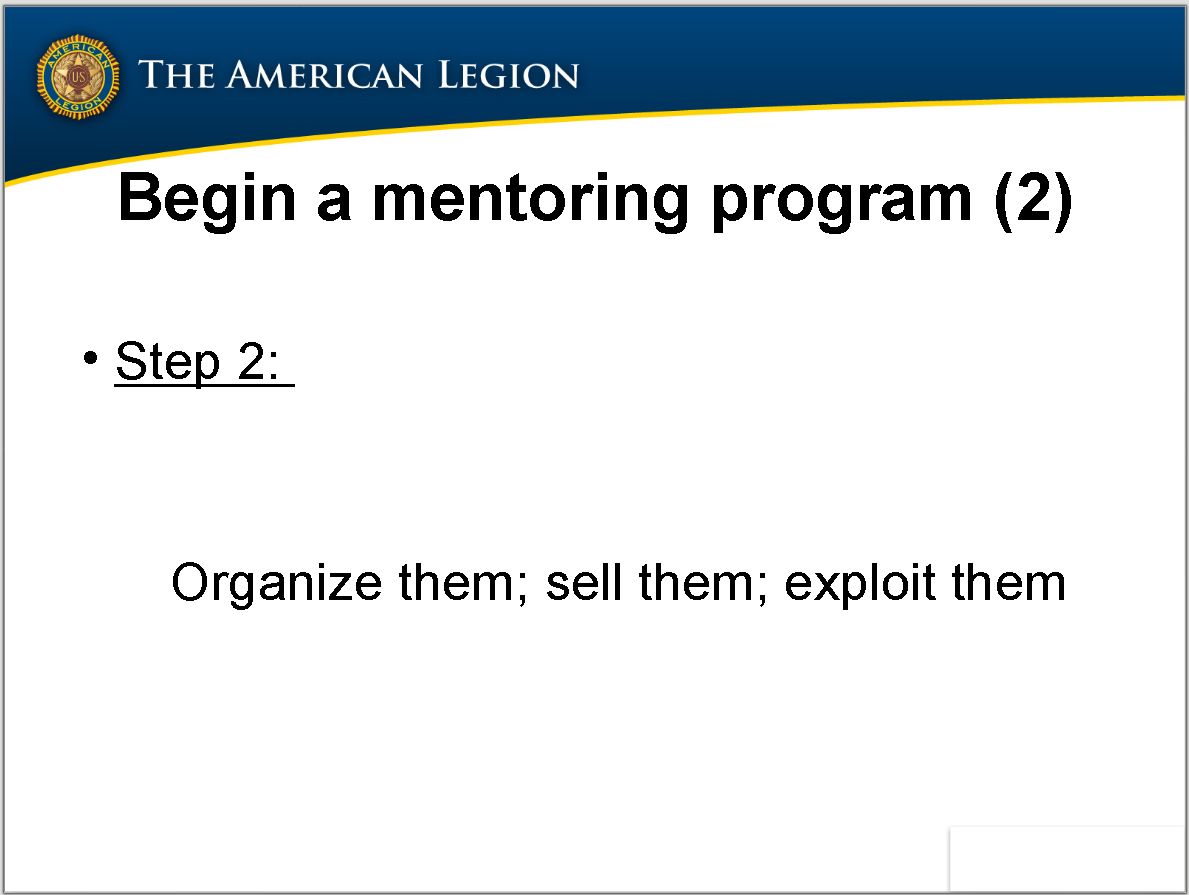 First, get the right people "on the bus." then, inspire them to action by explaining the relevant features and benefits of a solid mentorship program. Once you have hooked them, engage their unique talents. We know that veterans love to rally around a "Challenge" and love to fulfill "a mission". Use that to your advantage.
First, get the right people "on the bus." then, inspire them to action by explaining the relevant features and benefits of a solid mentorship program. Once you have hooked them, engage their unique talents. We know that veterans love to rally around a "Challenge" and love to fulfill "a mission". Use that to your advantage.
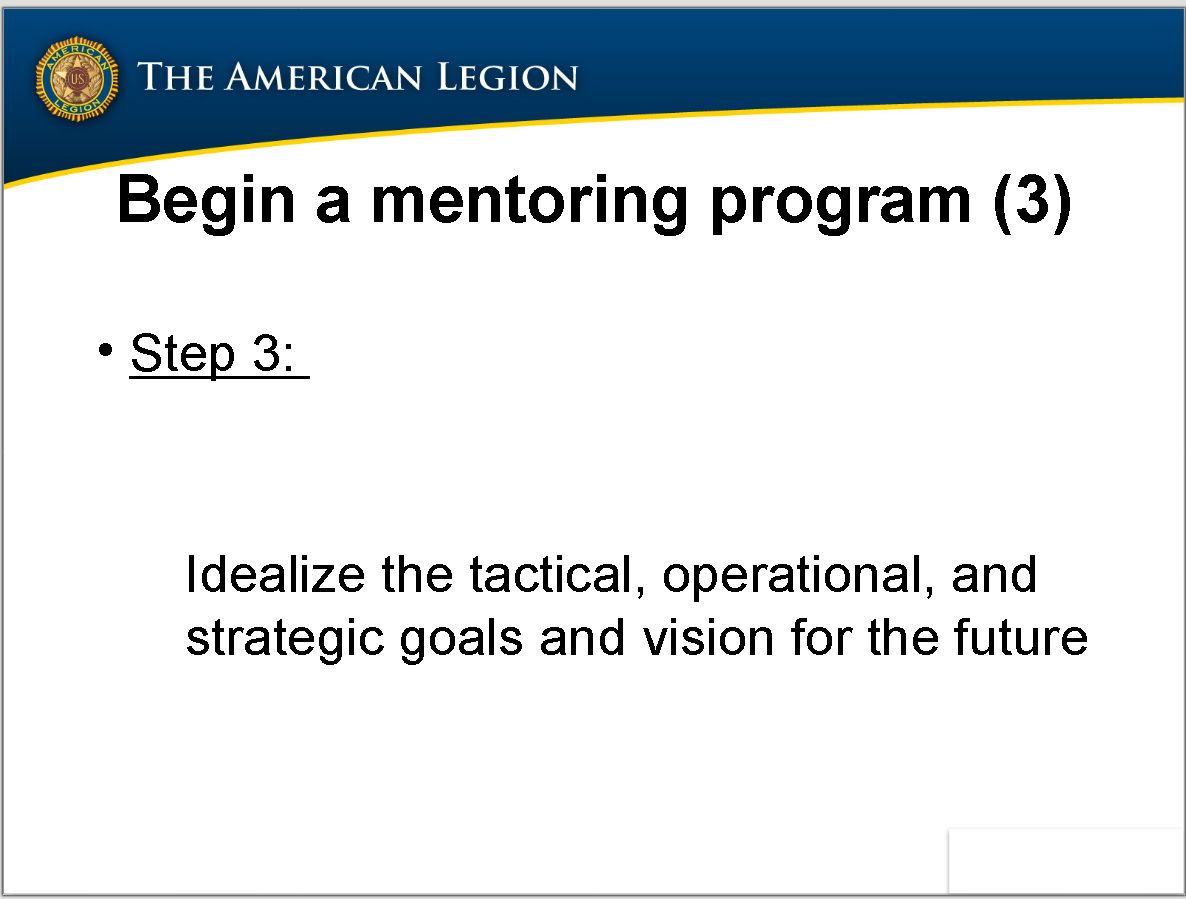 It is important for visionaries to romanticize what the organization "could be", if perfect. This allows for the aligning of focus in the pursuit of perfection. Perfection never comes to fruition, but the journey toward it makes things better, and better, and better with each passing generation. The pursuit of perfection also allows the organization to adapt to change faster.
It is important for visionaries to romanticize what the organization "could be", if perfect. This allows for the aligning of focus in the pursuit of perfection. Perfection never comes to fruition, but the journey toward it makes things better, and better, and better with each passing generation. The pursuit of perfection also allows the organization to adapt to change faster.
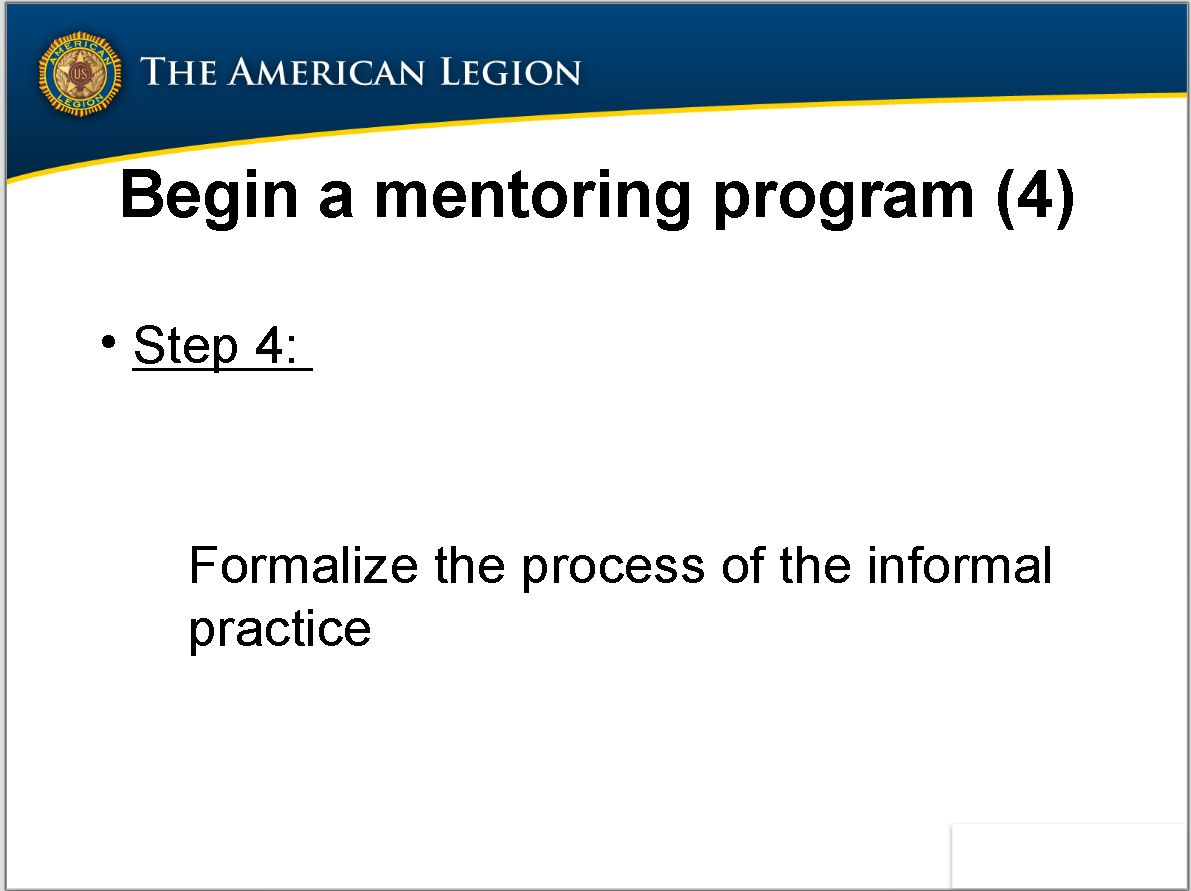 Determine the "Mission, Vision, and Values" of the mentorship program --ensure that it supports the tactical, operational, and strategic plan. Design a routine ( meetings and procedures; social gathering; unique social media sub-groups; responsibilities; reporting, etc.) that will allow you to see who is "hungry" to participate. Most importantly, do NOT assign mentors to mentees or vice versa.
Determine the "Mission, Vision, and Values" of the mentorship program --ensure that it supports the tactical, operational, and strategic plan. Design a routine ( meetings and procedures; social gathering; unique social media sub-groups; responsibilities; reporting, etc.) that will allow you to see who is "hungry" to participate. Most importantly, do NOT assign mentors to mentees or vice versa.
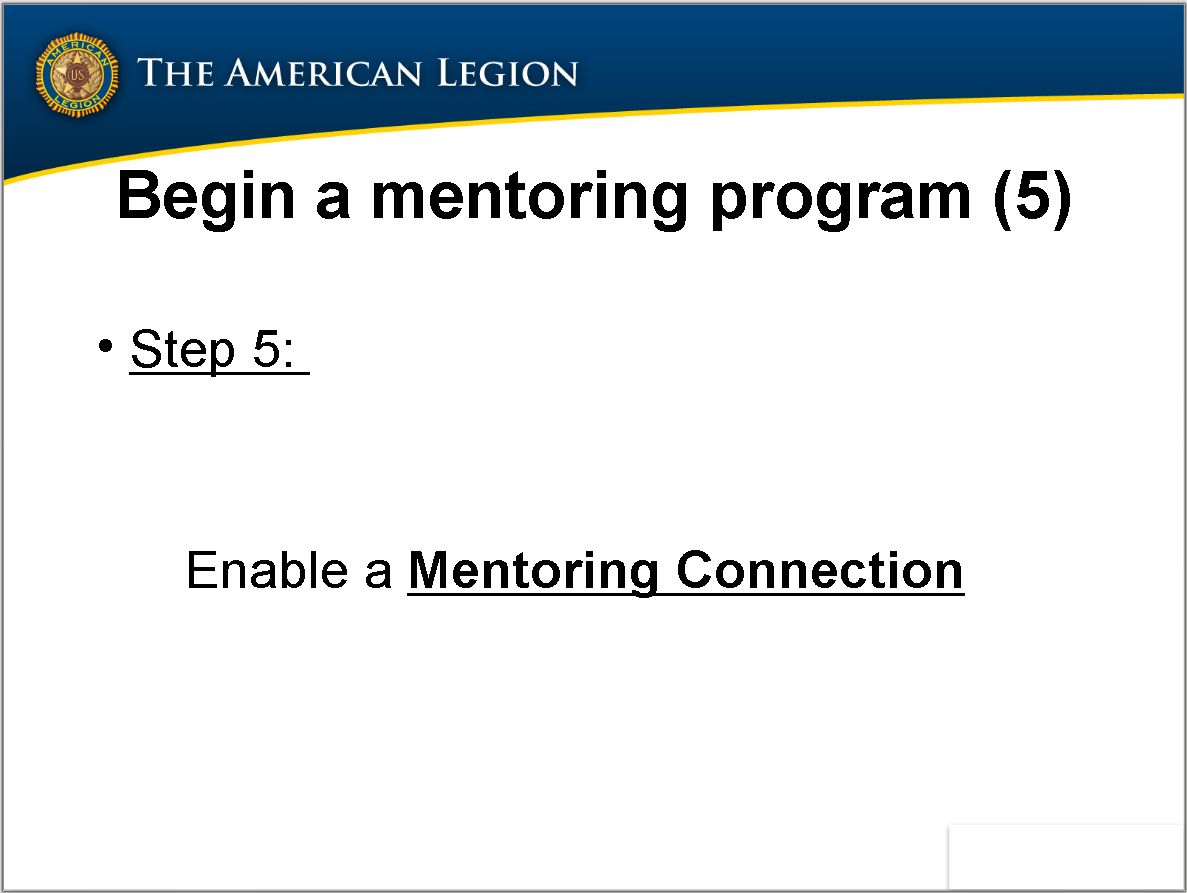 See definiton on next slice ( below )
See definiton on next slice ( below )
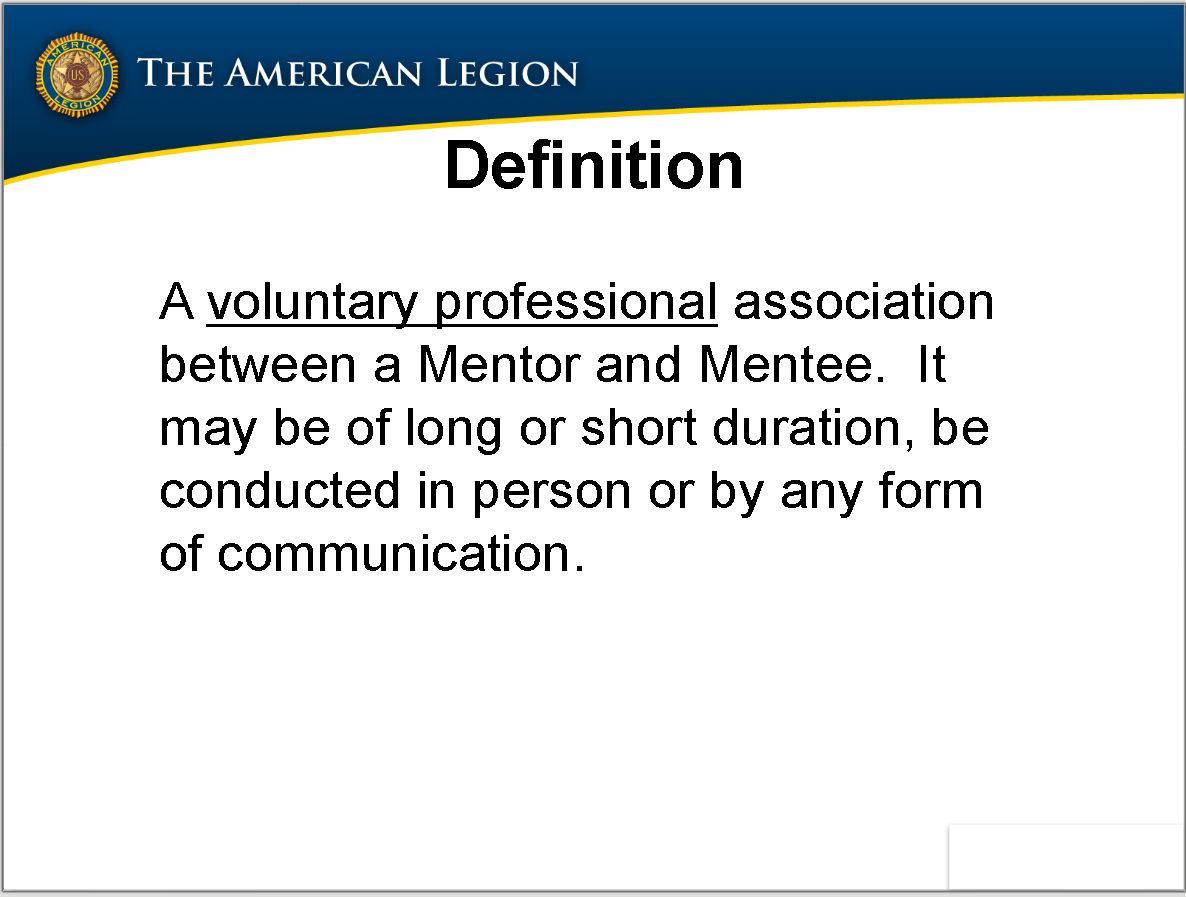 Once you identify your talent, you find a way to conveniently group them together ( off sight luncheons, field trips, additional meetings, team-building exercises, and family involvement events). Treat them as elite and they will become elite. Once they do, within the limitations of a "formalized mentorship" program, then they will blossom together based on intangible traits and charactersitcs... and alignment to a cause.
Once you identify your talent, you find a way to conveniently group them together ( off sight luncheons, field trips, additional meetings, team-building exercises, and family involvement events). Treat them as elite and they will become elite. Once they do, within the limitations of a "formalized mentorship" program, then they will blossom together based on intangible traits and charactersitcs... and alignment to a cause.
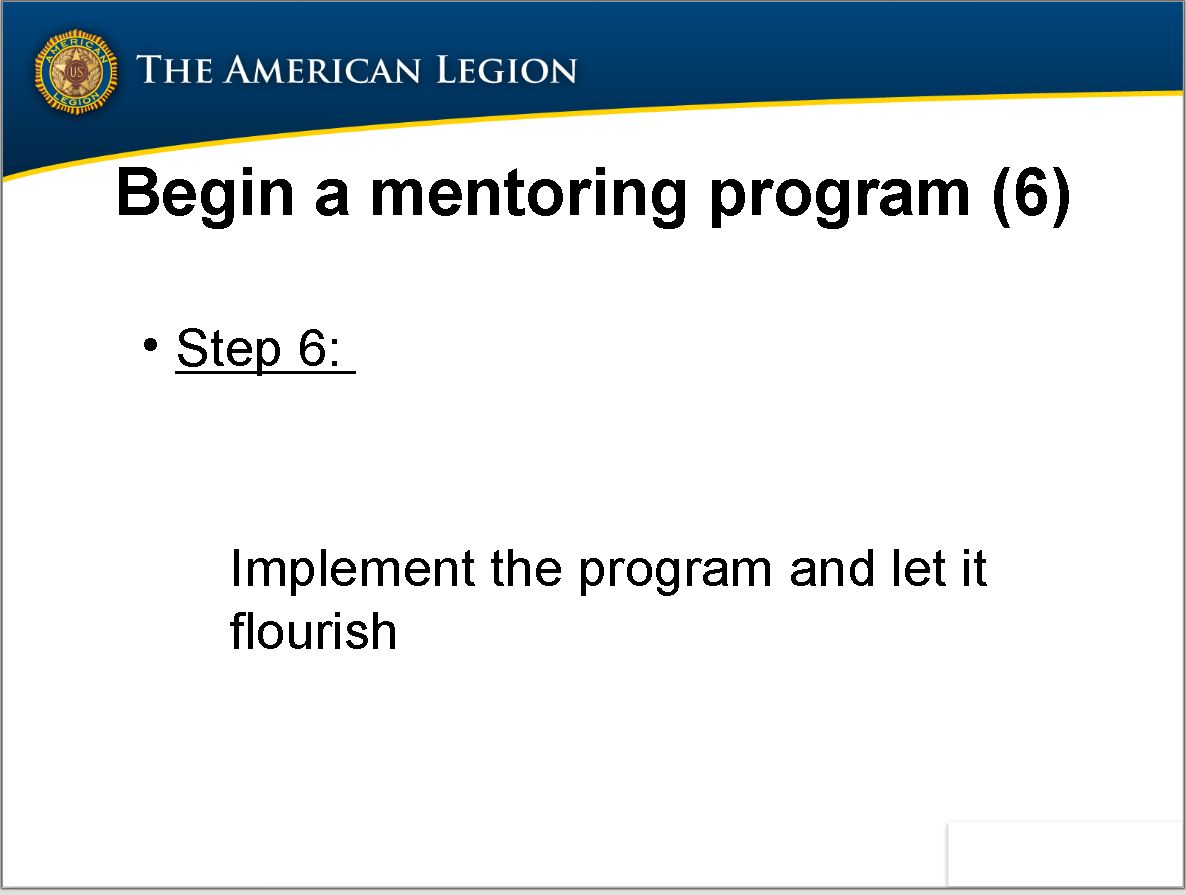 There are limitations of control in a mentorship program. Just like leadership, mentorship can be positive or negative, Positive mentorship focuses on improving the status quo and building on success. Negative mentorship involves the focus on past and present failures. You will find that with any mentorship program, both will exist all around you. This is why it is important to avoid mandating the mentor/mentee relationships or limiting them to positional mentorship only.
There are limitations of control in a mentorship program. Just like leadership, mentorship can be positive or negative, Positive mentorship focuses on improving the status quo and building on success. Negative mentorship involves the focus on past and present failures. You will find that with any mentorship program, both will exist all around you. This is why it is important to avoid mandating the mentor/mentee relationships or limiting them to positional mentorship only.
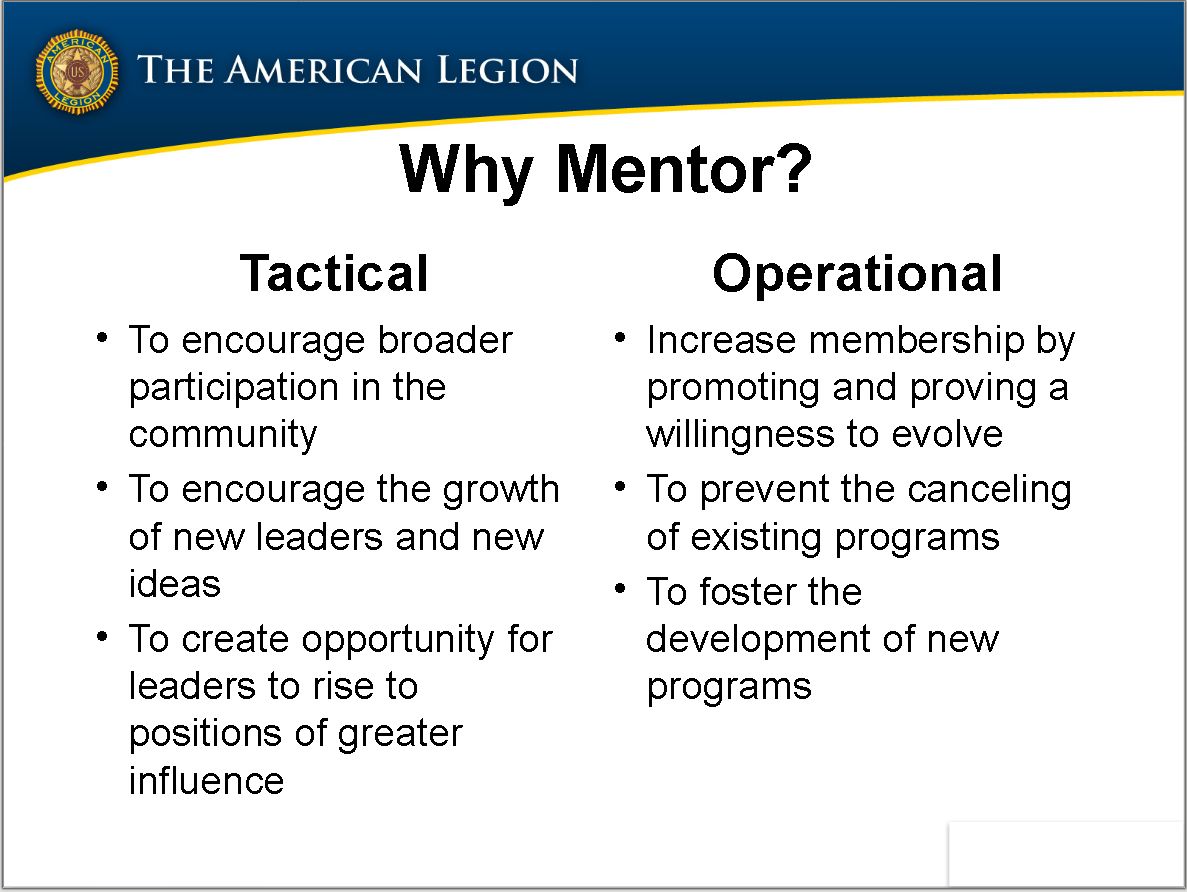 This space intentionall blank
This space intentionall blank
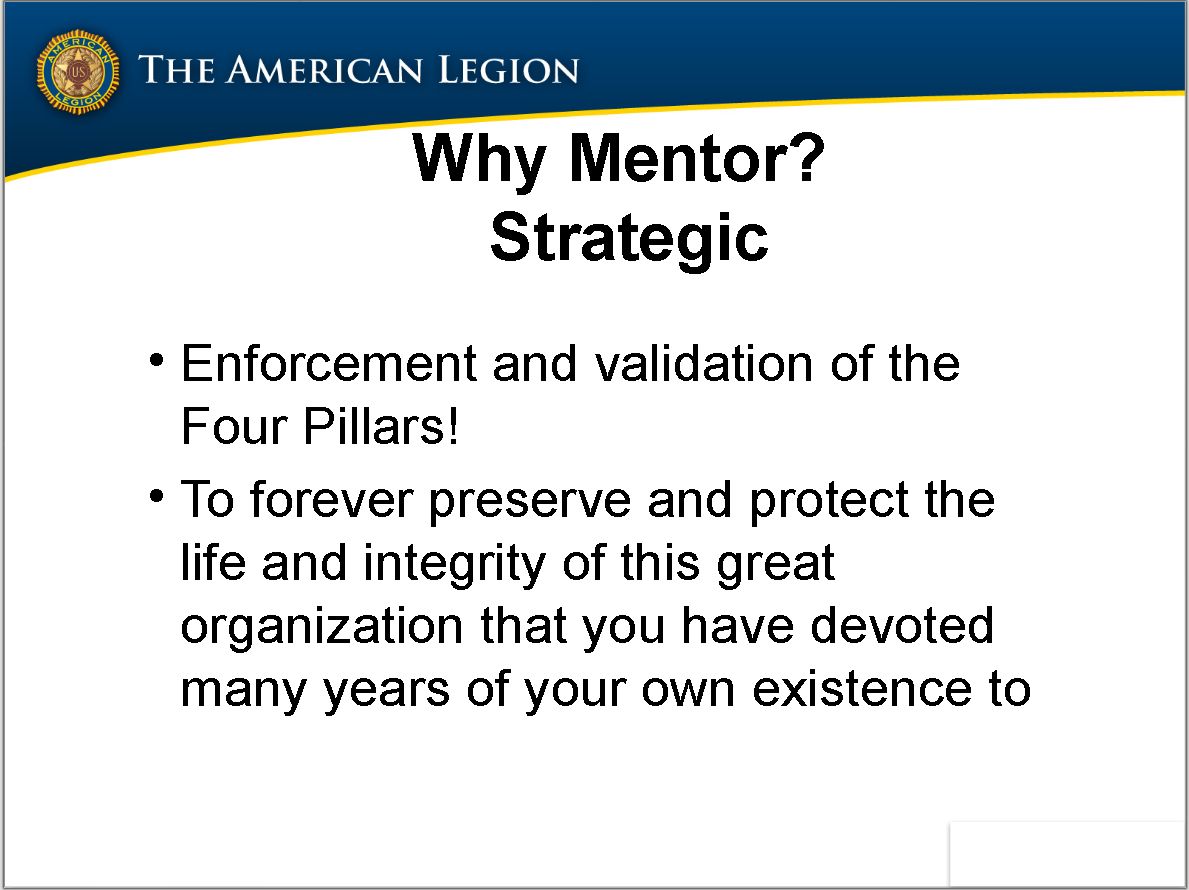 This isn't just about "saving The American Legion," it's about making it better, and better, every single day. By maintaining the health of the organization ( getting rid of cancer and toxic blood; refreshing the brain with constant knowledge; remaining active in every sense), we ensure longevity. When we let cancer "dig in," become sedentary on our humps at the bar, instead of active on the streets, then we start the countdown to the end.
This isn't just about "saving The American Legion," it's about making it better, and better, every single day. By maintaining the health of the organization ( getting rid of cancer and toxic blood; refreshing the brain with constant knowledge; remaining active in every sense), we ensure longevity. When we let cancer "dig in," become sedentary on our humps at the bar, instead of active on the streets, then we start the countdown to the end.
